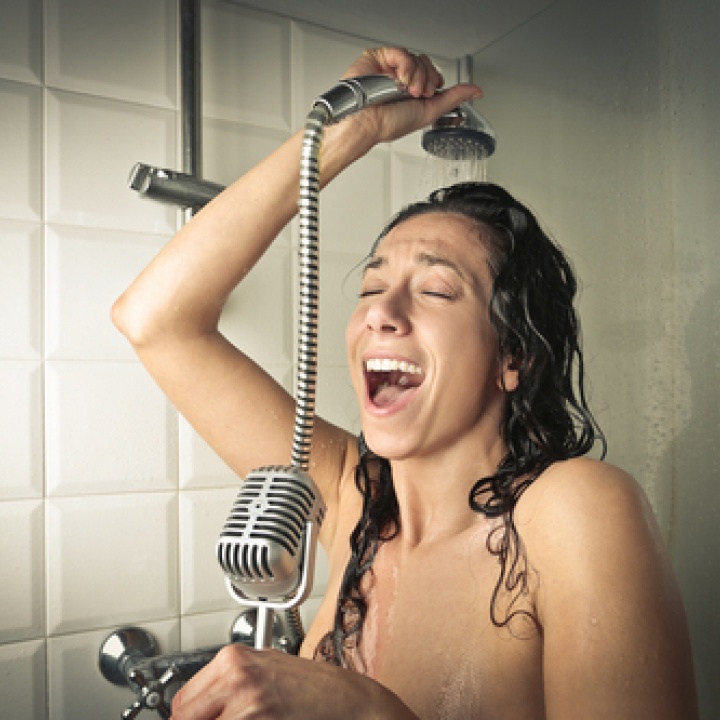Britain is a nation of shower singers. According to a recent survey we conducted, 89% of us like to belt out a tune in the bathroom. We sing all sorts, from Coldplay to Cradle of Filth, from Frozen to Fresh Prince.
But our favourite is Ed Sheeran. More than one in three of us belts out the Brit Award winner’s tunes in the shower, putting him ahead of legendary artists Queen, ABBA and Bon Jovi.
Research shows that our shower singing could be doing us the world of good. Singing is linked to all sorts of emotional and physical health benefits, and according to Professor Graham Welch, Chair of Music at University College London, singing in the shower could be especially good for us.
The Health Benefits of Singing in the Shower
“Singing is a fully body workout, especially in the shower,” explains Professor Welch. “There are good acoustic resonances, moving warm/hot water, steam, physical movement, and a general sense of feeling good at the start of the day, which is when the emotional system kicks into gear.
“This increases our activity and alertness (measured by things like higher cortisol levels when we get up compared to later in the day). The emotional benefit of singing and expressing yourself, such as in the shower, will produce a “feel good” sense of wellbeing that will have health benefits in general, and also allow you to enter the world of work that day in a positive frame of mind.”
Singing in the shower is the mental stimulation most of us could do with first thing in the morning, and that’s because singing is such a complex process that engages many different parts of the brain.
“Singing uses our anatomy and physiology in coordination, and that is intimately linked to all sorts of neurological functions, including the processing of sound, auditory motor network behaviour, language production, language listening and visual imagery. Music is widely represented in the brain, and singing brings many parts of the brain into coordinated activity.”
Looking at the research, the benefits aren’t surprising. A number of studies have linked singing to better heart and mental health. Dementia patients can also benefit from a good sing-along. Professor Welch says: “The evidence is very positive about the health benefits for people suffering with mental as well as physical difficulties, including dementia, heart disease and related pulmonary function – again not least because singing is an aerobic activity which improves oxygenation of the blood, cardiac function, breathing and alertness.”

Why Do Women Sing in the Shower More Than Men?
Although our survey found that most people enjoy a shower sing-along, it was more popular among some demographics than others. Only 73% of men claimed to sing in the shower, compared to 88% of women. Professor Welch thinks this is a cultural thing.
“The sex differences may be because men, at least in the English-speaking world, tend to be less expressive of their inner emotional state, and singing is part of that self-expression. Research into gender and choirs, for example, suggests that men are less likely to speak about their feelings related to singing than women, although when prompted they’re just as positive about the experience.”
Why Do We Sing Less As We Get Older?
We’re also less likely to sing in the shower as we get older: 94% of 18-25-year-olds said they sing in the shower, but this number dwindled to 80% among the over-40s. Rather than being cultural, this is more likely a natural physical part of aging.
“The age difference may relate to the body losing tonality as it ages, and a loss of aerobic function. Singing upright is probably more effortful compared to when younger. Nevertheless, there are many examples of older people enjoying their singing, especially in choral groups, many of which have members in their 90s.”
Can Singing Make Us Happier?
All this suggests we should shrug off the self-consciousness, grab our shower head microphones and keep up our crooning. It could lead to a happier life all round, says Professor Welch: “There’s evidence that positive singing experiences, especially collectives ones, promote a greater sense of self-efficacy and self-esteem. This feel-good self-perception is linked positive emotional states and, by inference, an increased sense of happiness.”

